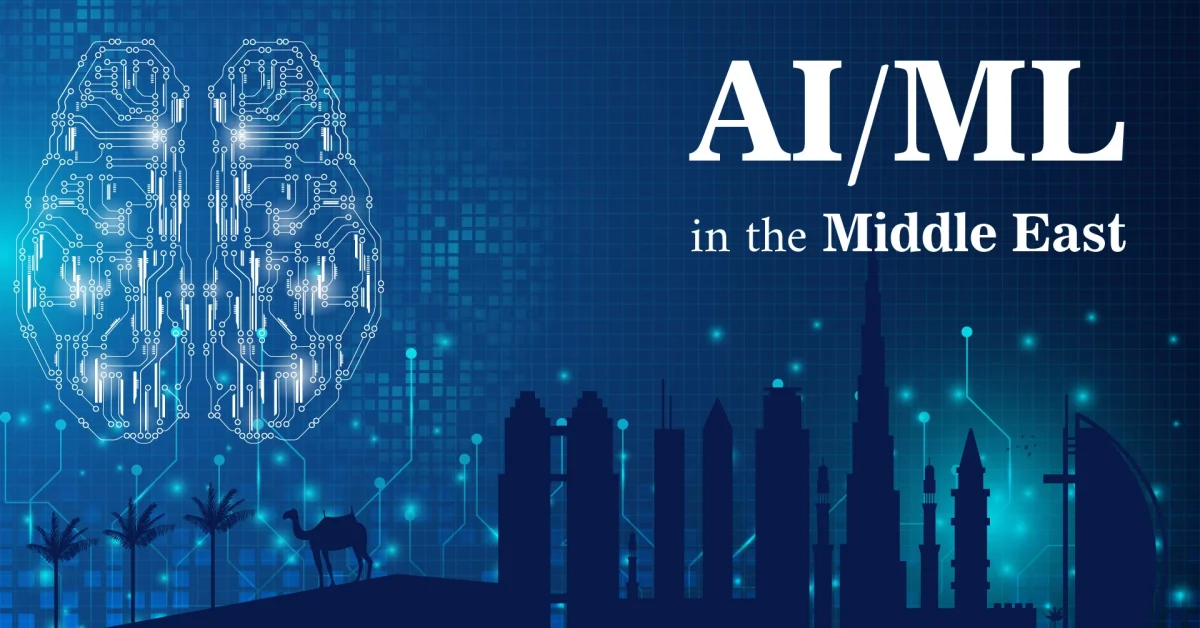
Akkomplish is a global business solution and service provider for your business transformation needs and facilitating holistic organizational growth with impeccable standards.
Call Us: +1 - 980 347 3323
Email: info@akkomplish.com
Akkomplish USA LLC
155 Gibbs St 4th Floor, Rockville Maryland 20850 United States
Scope of AI and ML in Public Sector in the Middle East Region – An Overview
Simply put by Minsky, and McCarthy, who were the conceptualizers of AI, it is any task executed by a machine that would previously have required human intelligence. This definition is very subjective, creating a question of whether something is truly AI or not.
AI is a term used for simulated intelligence in machines. Simply put, a domain of computer science where machines are programmed to think like or mimic human intelligence.
Artificial Intelligence encourages inbuilt intelligence in machines to work and react like humans and takes rationalized actions with the best success ratio for a given task.
Speech recognition, planning, learning, analyzing, and problem-solving are some of the areas where one can leverage AI and ML.
Since October 2017, UAE His Excellency Omar Bin Sultan Al Olama is the appointed Minister of State for Artificial Intelligence. This makes UAE the first country in the world to have a designated Minister for AI.
Middle Eastern countries nurture a vision for 2030 where they wish to place AI technology at the center of all national economic strategies. AI’s significant positive impact on Middle East GDP indicates its contribution to be more than USD 300 billion by 2031 as per a report by IBM. [1]
The UAE has prioritized its commitment to the adoption of exponential technologies (such as AI) to transform businesses, government, and society.
The UAE economy uses Artificial Intelligence significantly in the following sectors:
Education Sector: institutions in UAE use AI and machine learning to aid with the prediction of students who tend to drop out, the employment ability of graduates, and so on.
Banks and financial organizations: The banking sector uses AI technology for fraud detection, advanced customer services, and management, along with risk assessments.
Government: The public sector assimilates Data & AI to create smarter and efficient public sector.
Healthcare: Integrate Data and AI into the healthcare sector to increase access, enhance preventative care, and harbor the growing demand.
Traffic and Safety: Incorporate Data & AI into Mobility to build a regional hub by creating smart city Mobility technology, and enhancing traffic safety in cities. [2]
A prevalent use case scenario tried and tested is a methodology proposed to improve the conventional process of developing the gasoline demand. The Middle Eastern gasoline demand outlook can be developed using artificial intelligence modeling technology. it is a hybrid perspective where artificial neural network (ANN), genetic algorithms (GA), and data mining (DM) are devised for the development of the gasoline demand model.
The input variables for the machine learning model included GDP, gasoline prices, population, diesel prices, and transport data details along with transformed variables and functional links. A framework for the deployment of the artificial intelligent model was introduced and developed.
Data mining, data preparation; preprocessing; features selection and identification of significant inputs; model architecture design; model training, verification, and testing; model selection, model performance indicators; model optimization and fine-tuning; and postprocessing of results were all part of the development methodology.
The scope of utilizing AI capabilities further expands to Government Licensed Healthcare Providers and researchers involved in human research, Healthcare insurers, local, national, and locally-based international end-user utilizing clinical and non-clinical data of patients or population of Abu Dhabi in its AI endeavors.
On World Intellectual Property Day, His Excellency Dr. Maji Bin Abdullah Al Qassabi unveiled a new strategy. These strategies target to evolve a national IP ecosystem that sustains the creation of an agreeable environment for innovation and business development.
Even Bahrain earns a reputation as the Middle East's testbed due to its inventive, regulatory framework, indestructible technology ecosystem, and quick shift to eGovernment. Bahrain wishes to build a global knowledge base that can be utilized by governments to accountably introduce AI across public sector institutions.
Other countries like Qatar have various AI initiatives in the pipeline. Qatar Center for Artificial Intelligence (QCAI) believes AI to be transformative technology and one of the main arenas in which nations of the world will compete. Qatar being a futuristic nation has made its vision clear for using its economic advantage to transform into a knowledge-based economy.
Qatar has a small, IT savvy population so utilizing AI-derived automation to augment human capability that utilizes both, the capacity and capability of the country's workforce is possible in a short span.
Vision 2030 aims to bring around the required changes across the economy. Almost 70% of 96 strategic goals under this vision are related to data and AI. There is a general excitement and euphoria about the country’s ambitions and the direction regarding AI implementations in public sectors. The impact of AI can be seen across various regions and different industries throughout the Middle East.
If incorporated wisely, AI has huge potential to increase productivity and overall GDP globally. Moving forward, the Middle East is going to be one of the leading regions on the map of the AI and big data market, thanks to soaring government investments in new technologies. AI plays a vital role in the future of the country’s automation sector. According to a report, the Middle East is considered the top digital riser among G20 countries. [2]
Increased investment in the Middle East in smart cities has resulted in a large increase in the adoption of AI technologies, as well as 5G and software, such as predictive analytics. Crown Prince Mohammed bin Salman revealed plans in 2021 to develop “The Line”, a 105-mile-long belt of hyper-connected towns in the kingdom's northeast that will have no automobiles, streets, or carbon emissions but will have smart infrastructure worth up to $200 billion.
Furthermore, the government is presently implementing significant educational changes to ensure students gain the digital skills necessary for future careers in AI and other technologies like blockchain and the Internet of Things (IoT). The government and the Ministry of Education are collaborating to guarantee that school and university curricula meet future needs in AI, data science, and data security.
The Middle Eastern Artificial Intelligence Market is growing at a CAGR of 32.6% over the next 5 years. Oracle Corporation, Microsoft, Amazon Web Services Inc., and SAP SE are the major players in this region's AI market.
By 2025, global revenues from AI are estimated to reach $90 billion, with a growth rate of 45% each year. Over and above this, long-term project AI contribute a 14% growth of global GDP by 2030, which equals an additional $15.7 trillion.
Obviously, AI presents a remarkable commercial opportunity, by pulling together trends and networks in this technology. The scope and stakes for AI and ML implementations are definitely high and worth leveraging and we will bring forth opportunities for the same for various Government sectors in the coming series of blogs.
If you think AI/ML solutions can work best for your business, you may contact us to discover unique solutions that we offer our clients across the globe.




